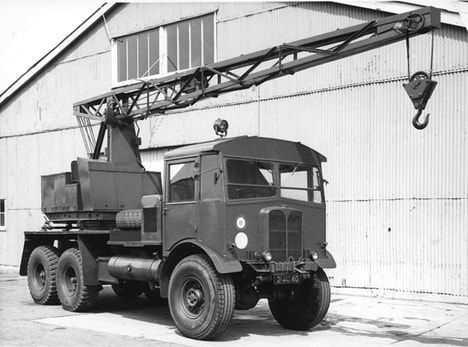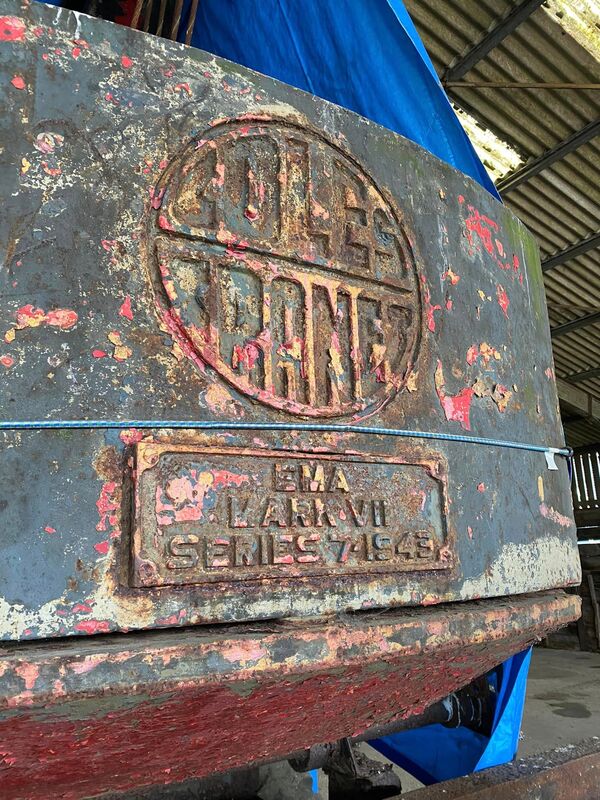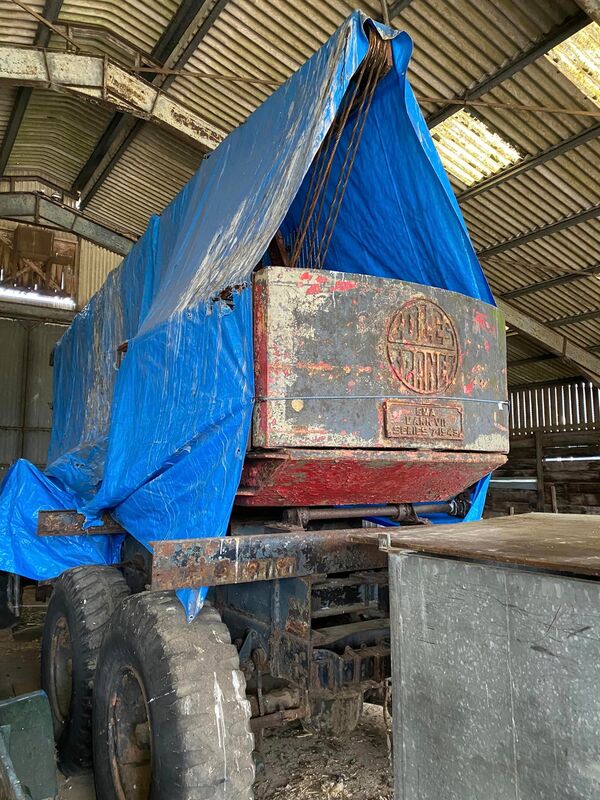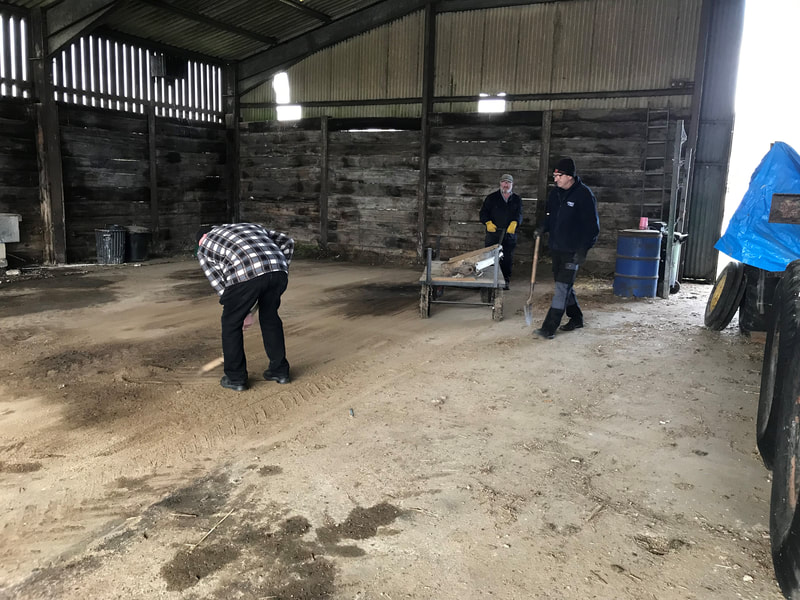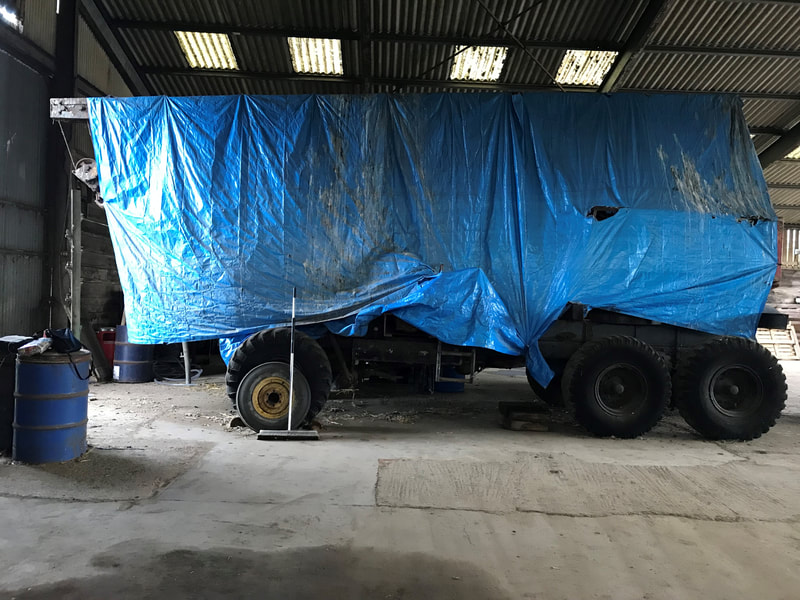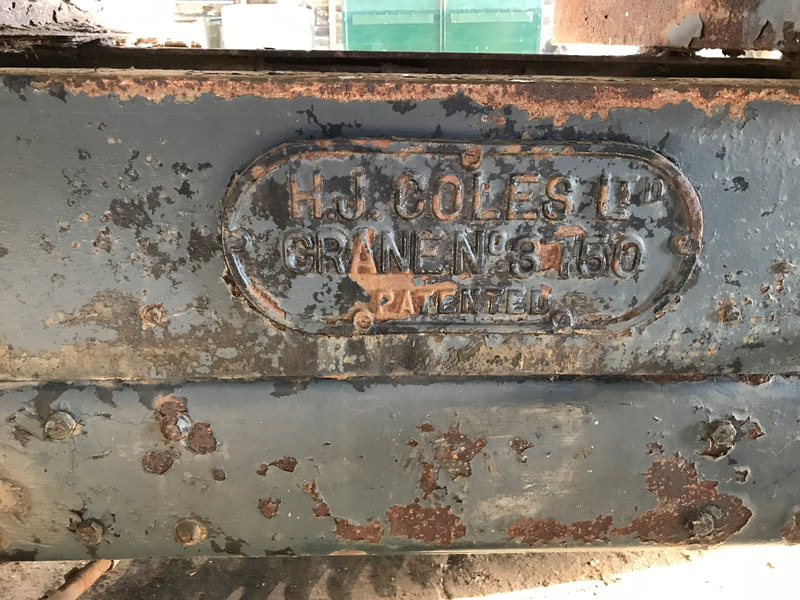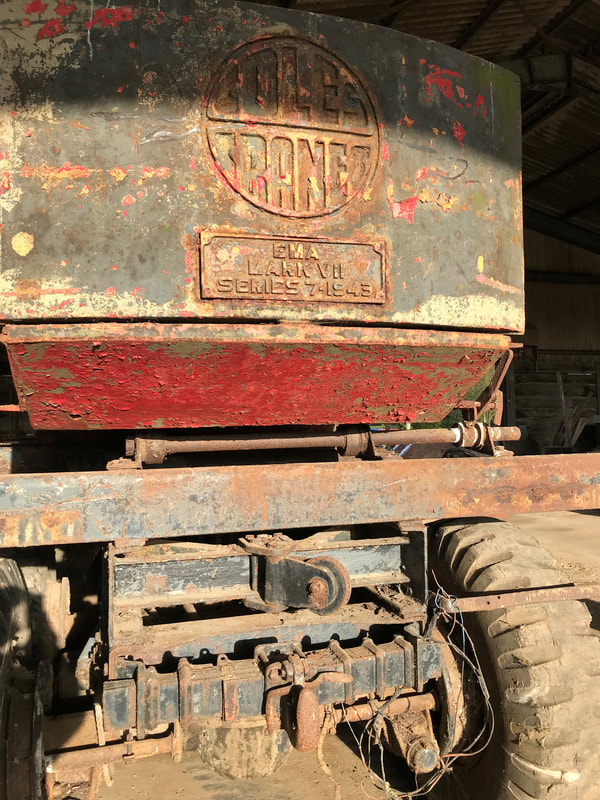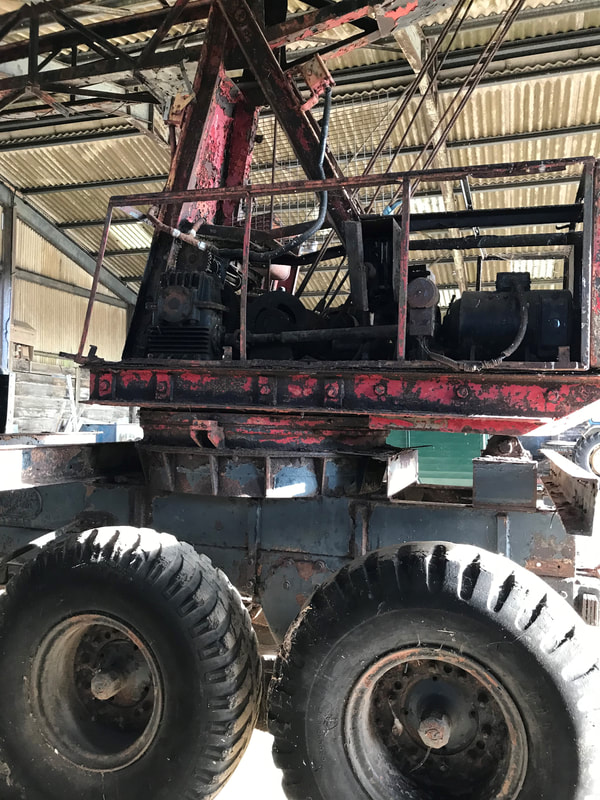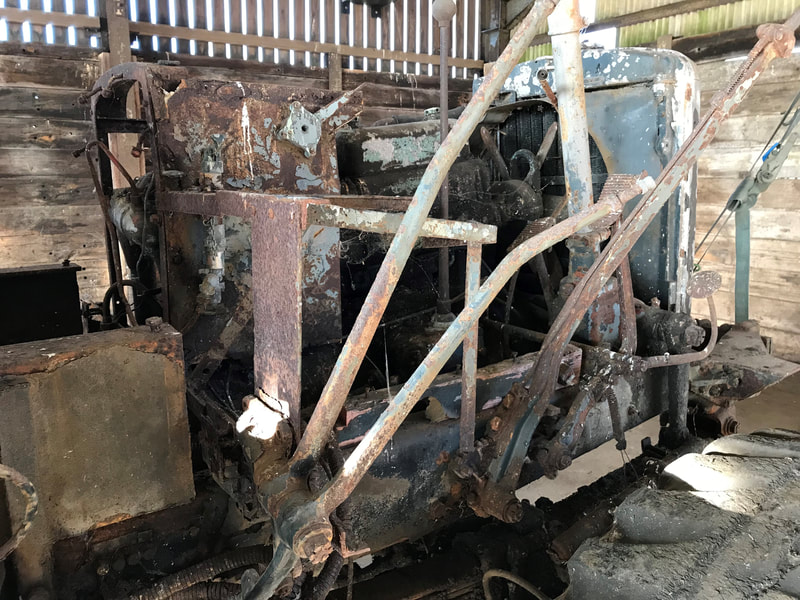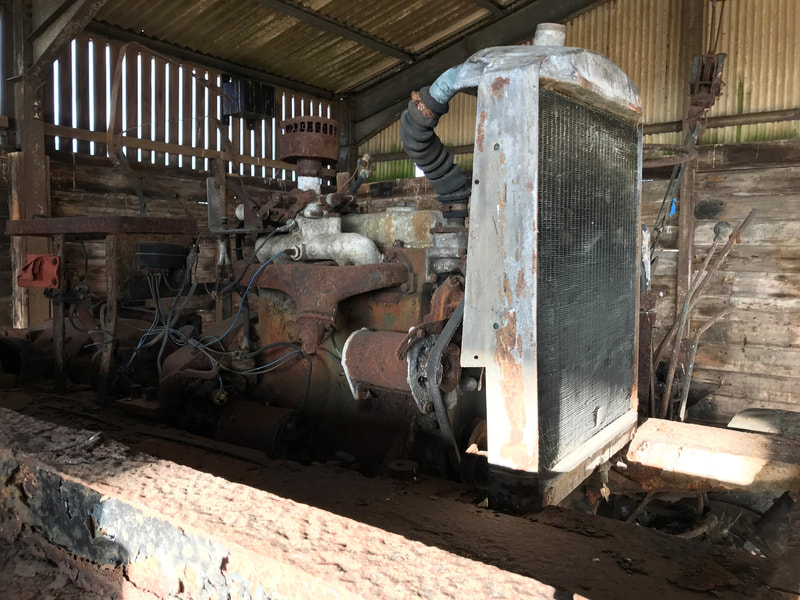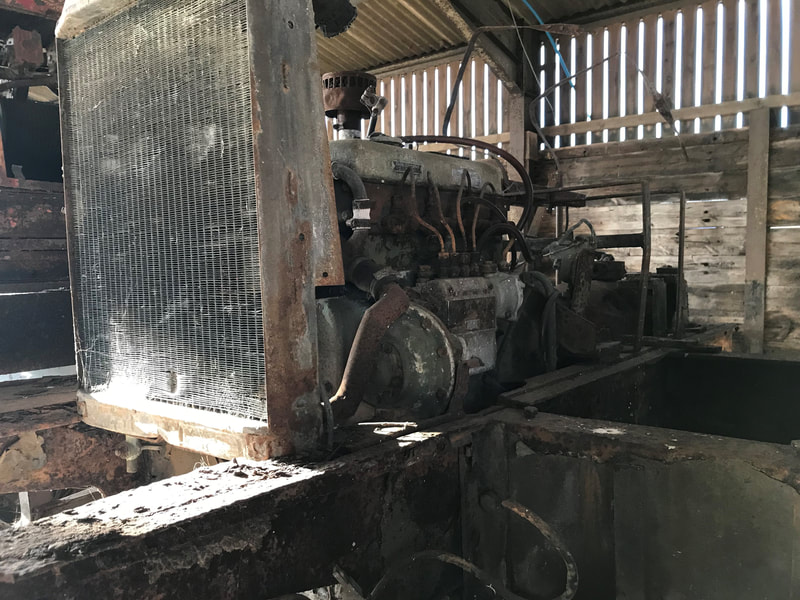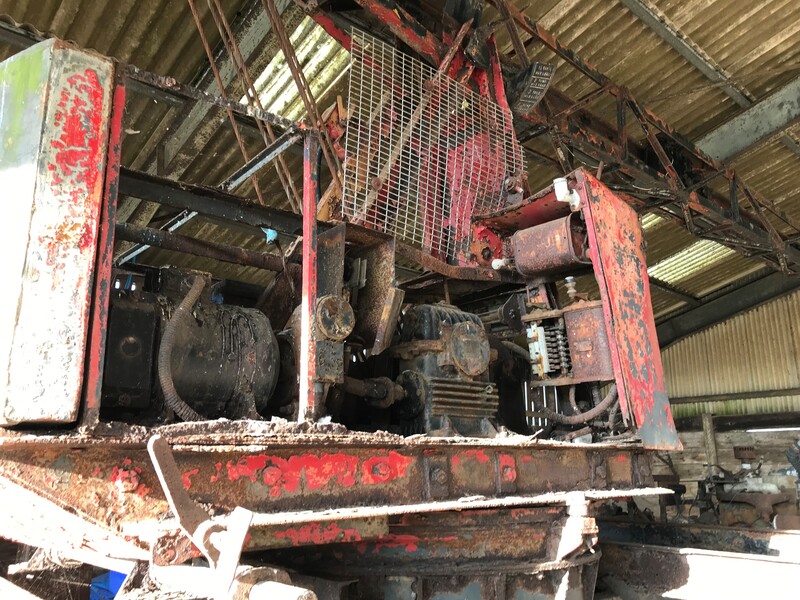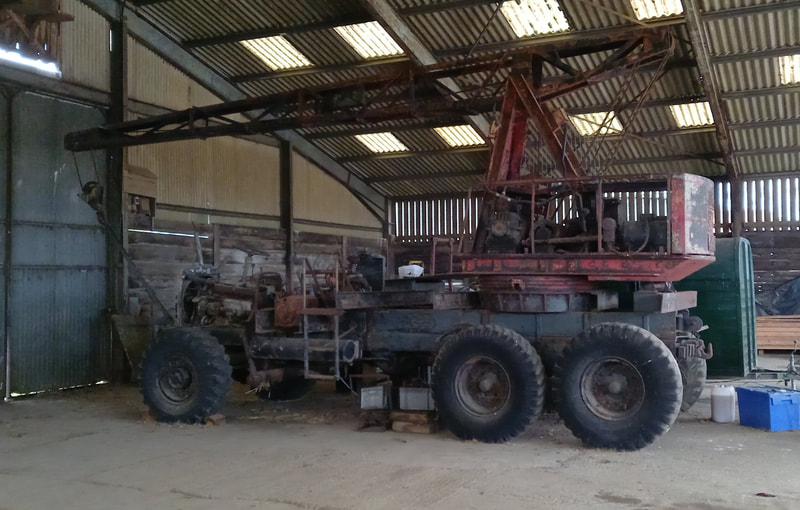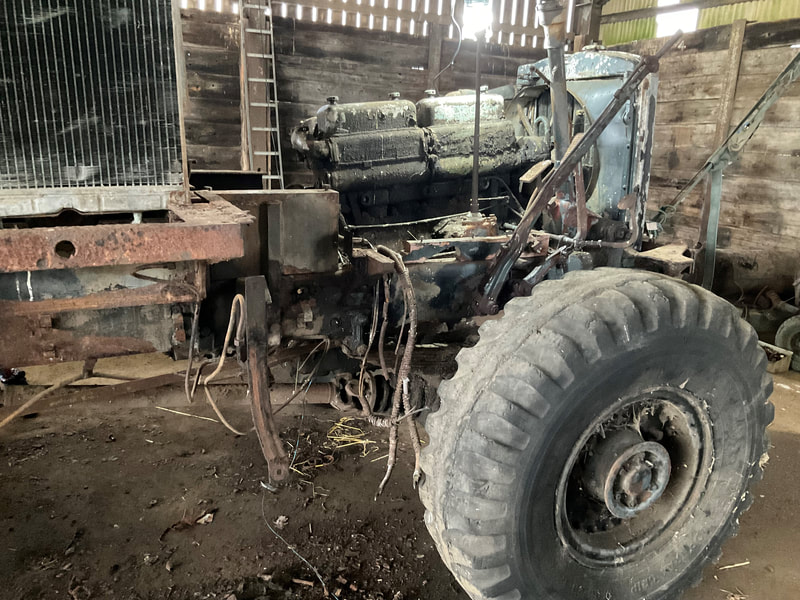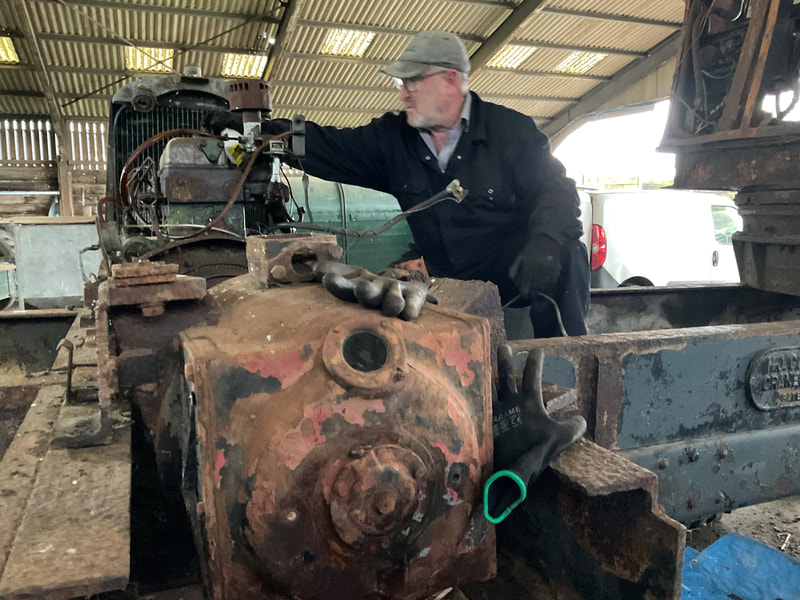Metheringham Airfield Visitor Centre is happy to announce their latest major project; that of restoring to display standard our very own 1943 Series 7 Coles Crane, which, is mounted on an AEC Matador chassis. The project is being led by volunteer Mark Garrick.
If you would like to help with this project then please get in touch with Mark via his email: [email protected]
Updates and photos will appear here as and when we can.
If you would like to help with this project then please get in touch with Mark via his email: [email protected]
Updates and photos will appear here as and when we can.
Feb 24 - Original information board for an AEC 0854 Coles Crane
This is a picture of an original information board for a AEC 0854 Coles Crane.
The smaller crane is interesting. Anybody know why? The answer is given by the aircraft. It’s a Heinkel! The crane was captured after Dunkirk and used by German ground crew.
The smaller crane is interesting. Anybody know why? The answer is given by the aircraft. It’s a Heinkel! The crane was captured after Dunkirk and used by German ground crew.
Feb 24 - A little update prior to us re-opening next month
Our Coles Crane Team haven’t posted for a while but the restoration of the crane continues, albeit slowly. We think you’ll agree, they’re doing a grand job! The rods are from the rear brakes.
Oct 23 - 7.7 litre AEC diesel engine (photographs by Mark Garrick)
After being stood for some years the 7.7 litre AEC diesel engine was coaxed into starting. This determined that it was worthy of a full strip down and service. The engine has been removed and volunteers manufactured a cradle for ease of access. This was made from an old missile carrier!
Oct 23 - Paint and rear brake drum removal (photographs by Mark Garrick)
Work goes on in removing the old RAF blue/grey paint and, more importantly, the rust. After removal the bare metal is painted with red oxide which will prevent further rusting. A closer look at the crane serial number plate shows the ‘drab green’ of the cranes war time colour. The blue/grey would have been painted post war. It is intended to return the crane to its war time livery of drab green.
The photos also show the removal of the rear brake drums. Most of the cranes peripherals have been removed (fuel tank, battery box, etc) to expose the chassis for rust removal.
The photos also show the removal of the rear brake drums. Most of the cranes peripherals have been removed (fuel tank, battery box, etc) to expose the chassis for rust removal.
June 23 - photographs by Mark Carrick
photos by Mark Garrick
Coles Crane - Summary
Before the advent of the Second World War, the RAF had in service a crane used in the routine maintenance of aircraft.
The Coles Crane, Electric Mobile Airfield (EMA) had several variations, and every airfield would have had one in some guise. As the war progressed and the bombers got bigger, the RAF identified the need for an airfield crane that could lift 6 tons and also be mobile. This led to the production of the Coles Crane Series 7, manufactured during 1943 in Sunderland. A great number of these were placed on a Thorneycroft Amazon 6x4 chassis.
AEC (Associated Equipment Company) already supplied a 4x4 lorry known as The Matador which was used mainly for towing artillery. The original 6x6 version was named The Marshall but no one ever called it that, preferring The Matador.
The Matador, equipped with the Coles Crane and its 6x6 all-wheel drive easily coped with 'off road' recovery of crashed aircraft. It was also used by ground crew to lift engines, wings etc, in the maintenance and repair of aircraft. The chassis was also the basis of most tankers used in aircraft refuelling.
It is the Coles Crane Series 7 on an AEC 6x6 chassis with a 7.7 litre engine that we have at Metheringham.
Our current research shows that this model is one of only a handful still in existence and therefore, very worthy of restoring.
Before the advent of the Second World War, the RAF had in service a crane used in the routine maintenance of aircraft.
The Coles Crane, Electric Mobile Airfield (EMA) had several variations, and every airfield would have had one in some guise. As the war progressed and the bombers got bigger, the RAF identified the need for an airfield crane that could lift 6 tons and also be mobile. This led to the production of the Coles Crane Series 7, manufactured during 1943 in Sunderland. A great number of these were placed on a Thorneycroft Amazon 6x4 chassis.
AEC (Associated Equipment Company) already supplied a 4x4 lorry known as The Matador which was used mainly for towing artillery. The original 6x6 version was named The Marshall but no one ever called it that, preferring The Matador.
The Matador, equipped with the Coles Crane and its 6x6 all-wheel drive easily coped with 'off road' recovery of crashed aircraft. It was also used by ground crew to lift engines, wings etc, in the maintenance and repair of aircraft. The chassis was also the basis of most tankers used in aircraft refuelling.
It is the Coles Crane Series 7 on an AEC 6x6 chassis with a 7.7 litre engine that we have at Metheringham.
Our current research shows that this model is one of only a handful still in existence and therefore, very worthy of restoring.
3rd December 2022
The start of a very long project today was made by Andrew, Mark, Steve, Paul, Maureen and Brian. First job was to prepare the area to be used in the restoration prior to moving the Crane some 15ft sideways. Photos by Brian
The start of a very long project today was made by Andrew, Mark, Steve, Paul, Maureen and Brian. First job was to prepare the area to be used in the restoration prior to moving the Crane some 15ft sideways. Photos by Brian
10th December 2022
Some more photos. The Crane has been moved across and each part is being assessed as to what is required by Mark and as can be seen; it will be a rather long list! We have some of the missing bits to hand in store but nevertheless, it is going to be a long job. Photos show the main cab and engine area together with the separate engine for the Crane itself. Anyone wanting to join the team in this labour of love is more than welcome to get in touch.
Some more photos. The Crane has been moved across and each part is being assessed as to what is required by Mark and as can be seen; it will be a rather long list! We have some of the missing bits to hand in store but nevertheless, it is going to be a long job. Photos show the main cab and engine area together with the separate engine for the Crane itself. Anyone wanting to join the team in this labour of love is more than welcome to get in touch.
16th December 2022
Two photos below from Mark Garrick showing the Crane as she was when she first arrived on site some years ago and as she looks now with a full length view.
Two photos below from Mark Garrick showing the Crane as she was when she first arrived on site some years ago and as she looks now with a full length view.
14th January 2023.
The crane has been stripped further thanks to Mark, Maureen, Paul and others.
This is a really huge project all round... Photos: Brian McInnes
The crane has been stripped further thanks to Mark, Maureen, Paul and others.
This is a really huge project all round... Photos: Brian McInnes

